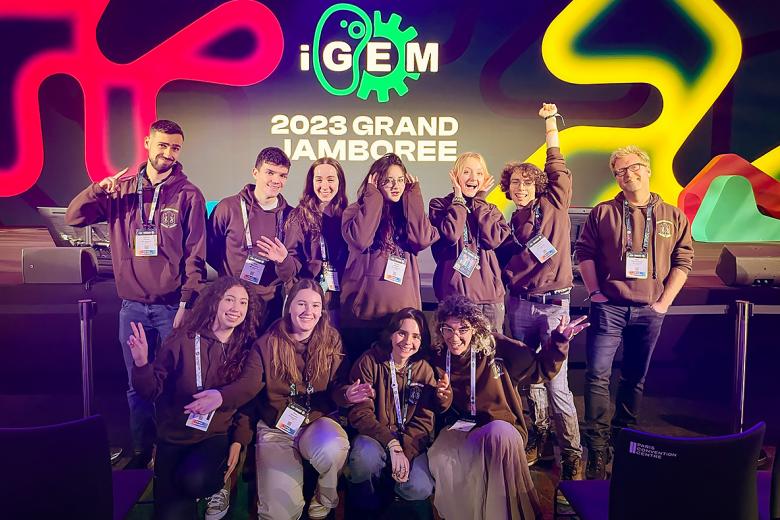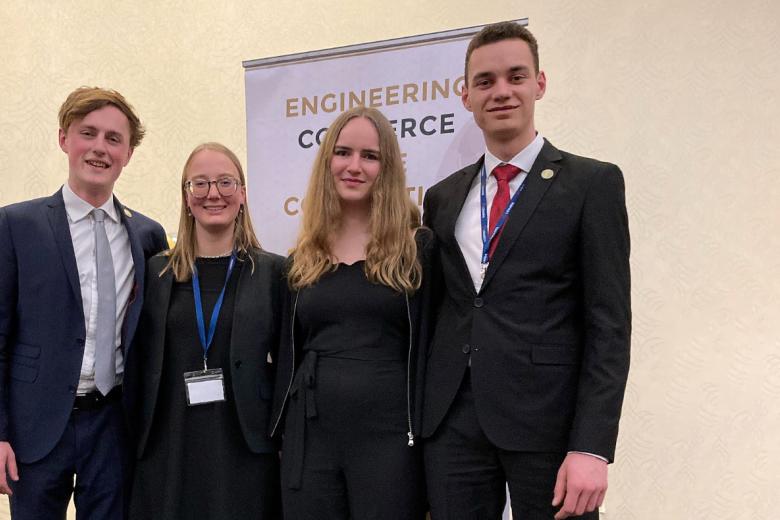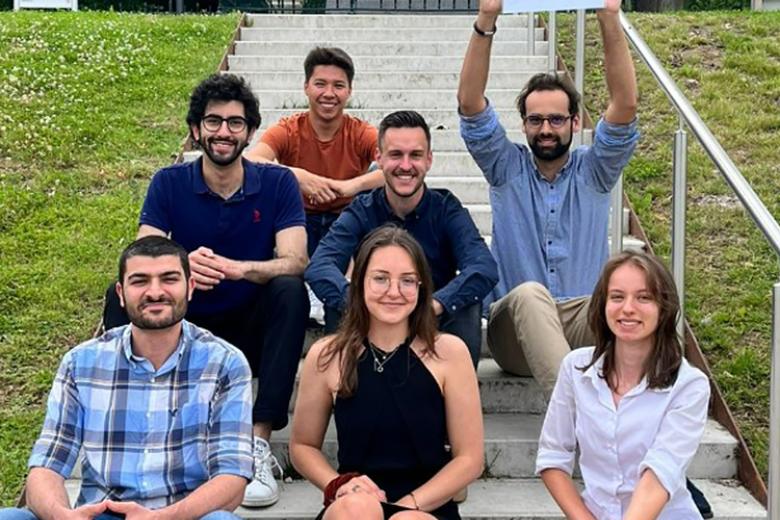Strong foundation for international talent
Nikola Prianikov came from Kyiv to study Data Science and Artificial Intelligence in Maastricht. He talks about how UM’s Foundation Programme opens doors for international talent, how he enjoyed his study experience despite war and pestilence, and how the Netherlands has come to seem like a viable place for a career.
While researching his academic options during his last year of high school in Kyiv, Nikola Prianikov came across UM’s bachelor’s programme Data Science and Artificial Intelligence. He visited the Open Day in 2018 and was immediately convinced by the city, UM and the programme – but there was a problem: the Ukrainian school system has 11 years – not enough to qualify for admission to Dutch universities.
UM’s Foundation Programme offers a solution for motivated, high-performing students who don’t meet entry requirements, often for bureaucratic reasons. During a one-year course, they provide intensive training in academic skills, courses relevant to the chosen bachelor’s programme, and English language skills. Nikola saw it as a chance to get into his study programme of choice. “Academically I found it very useful and I got the sense that it made my first semester a bit easier – also because I had already adjusted to student life in Maastricht and the international classroom. It also helped me get used to written assignments, which weren’t a big part of my education until then.”
Socially he enjoyed the experience too. “The atmosphere was very cordial and there were people from Latin America, Africa, and Asia planning to study many different disciplines. I am still in touch with some of them.” The Foundation Programme qualified Nikola to start his bachelor’s programme – which fulfilled all his expectations. “It’s a nice mix of mathematics, AI and computer science, so it’s still a relatively broad qualification. You learn to think about the bigger picture and there are many projects – although I should say that it’s a very demanding programme.”
From strength to strength
Nikola excelled academically and joined MaRBLe (Maastricht Research Based Learning), an honours programme that gives talented and motivated second-year students a chance to get a taste of multidisciplinary scientific research. “It was like an extra thesis in a group setting. You get an idea of the entire academic process from writing a proposal to applying at a conference. It’s challenging but I’ve really enjoyed it.”
After his positive experience at the Department of Advanced Computing Sciences, the master’s programme Data Science for Decision Making felt like a natural continuation for Nikola. He won a UM Academic Achievement Scholarship and is delighted with the programme. “Academically, it was a perfect fit and I really enjoy that we’re working on projects that have an impact.” Together with an international team, Nikola is working on an AI model to separate different types of plastics based on the spectral signal from infrared scanners. This would be a big step forward when it comes to sustainability through safe and effective plastic recycling.
A lot of world history
The timing of world events were, to put it mildly, not on Nikola’s side. The start of the pandemic coincided with his first semester and Russia’s invasion of his native Ukraine hit him hard. “I remember the moment: my parents had visited the week before and we had been talking about the looming threat – but, to be honest, I hadn’t thought it would actually happen.” When it did, it was the beginning of carnival in Maastricht. “It was unreal: I attended an anti-war gathering outside Centre Céramique; continuously there were people passing by in elaborate costumes on their way to celebrate in the city centre.”
While following the news from back home and hearing stories of rocket attacks and blackouts, Nikola tried to distract himself by doubling down on his studies. UM offered counselling and Nikola’s faculty organised a lunch for all the Ukrainian students and employees, but “it was my friends from MaRBLe that have helped me the most to pull though.” He hasn’t been back home in Kyiv since the Christmas break in 2022, but a bit of home is about to come to Maastricht.
More talent where that came from
His brother Valentin, four years his junior, has just started the Foundation Programme. He is also planning to study Data Science and Artificial Intelligence. “His experience was obviously very different than mine… it’s really nice to have him here. Maastricht feels a little bit more like home that way.” Nikola has grown to like the city a lot. “In the beginning it felt a bit small, but as time goes by I discover more and more things. I really think Maastricht offers something for everyone.”
After his positive experiences and having made several efforts at learning the language, Nikola is planning to stay in the Netherlands. “I’ll likely move to a bigger city but who knows: maybe something interesting comes from my thesis project – I like Maastricht.”
By: Florian Raith
Also read
-
Maastricht University science students win gold at the international iGEM competition
How do you fix a crack in limestone, such as mergel? Well, simply ask some bacteria to do it for you. In short, this is the goal 11 students from Maastricht University set themselves to do. They succeeded and ended up in the TOP10 best undergraduate projects competing in the iGEM competition. For...

-
Students of Business Engineering harvest international awards
A group of Maastricht University's Business Engineering Bachelor's students won three awards at this year's edition of the renowned ENGCOMM, the Engineering and Commerce Case Competition, held by the University of Concordia in Montreal (Canada).

-
Nitroshrimp: From shrimp waste to biobased fertilizers
A team of UM students from the Biobased Materials Masters, Business Engineering, Bachelors and Maastricht Science Program Bachelors was awarded 2nd place in the Netherlands’s national phase of Biobased Innovation Student Challenge Europe (BISC-E) Competition 2022.
